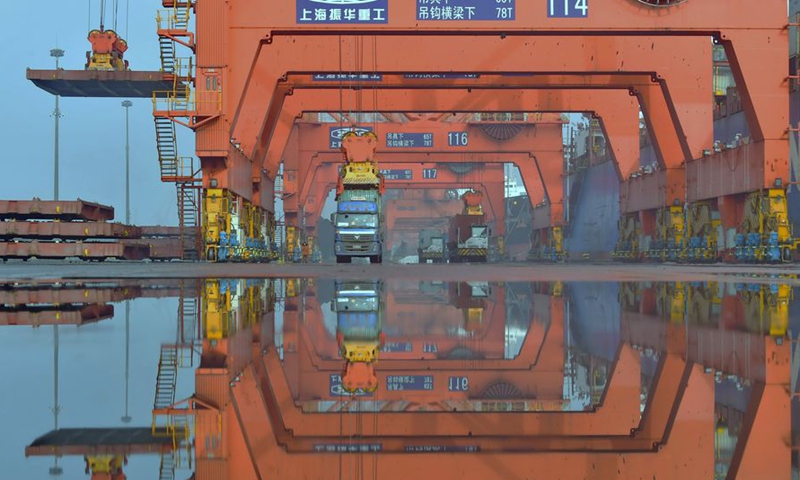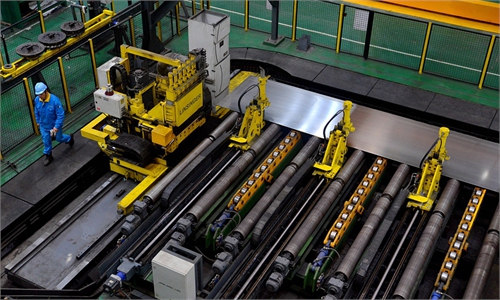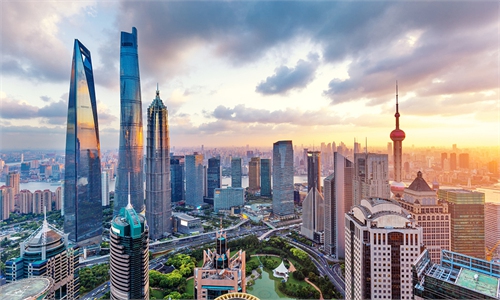SOURCE / INDUSTRIES
China aims for more supply chain autonomy in 2021

File photo:Xinhua
Beijing has set the task of enhancing independence and autonomy of the industrial and supply chain and deal with the key areas and "stranglehold" problems in 2021, according to a key central government meeting that ended on Friday.
During the annual Central Economic Work Conference in Beijing from Wednesday to Friday, Chinese leaders charted a course for the economic development in 2021, in which the building of a science and technology power was given importance, as Washington is cutting off access to US technology.
As the foundation for building a new development pattern, the industrial and supply chain should be secure and stable. It is necessary to promote the strength while filling the gap, to solve the key areas and "stranglehold" problems as soon as possible, the meeting said.
It also pointed out that China should lay a firm foundation for basic parts, basic technology, and key basic materials.
"It is a must-have strategy to enhance autonomy on industrial supply chain as charted in the conference as it is no longer workable to rely heavily on the basic manufacturing capabilities where China has forged a definite advantage over the past decades," Xiang Ligang, director-general of the Beijing-based Information Consumption Alliance, told the Global Times on Friday.
The task is in line with the broad outline of China's 14th Five-Year Plan (2021-2015), which makes technological autonomy one of the country's top priorities.
Mounting external pressure to restrict China's technological rise, especially in the basic material and technique area, has served as a wake-up call, Xiang said. "We need to strengthen our capabilities on this and there is no turning back. Otherwise, our previous efforts to build the current manufacturing power would collapse."
China has an established electronics product eco-system in recent years especially in the mobile and consumer electronics sectors, but it is still faced with the dilemma of being cut off by American chips and operating systems.
The Trump administration in August further tightened restrictions on China's technology giant Huawei to crack down on its access to commercially available chips.
"We estimate that tougher tech restrictions may take out as much as 0.5 percentage points per annum from China's potential growth in the next 10 years, although China should remain the top contributor to global GDP growth and an attractive destination for investors," said Wang Tao, chief China economist at UBS Investment Bank.
Global Times



